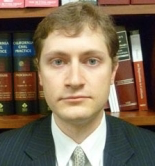
State: Calif.
Grinberg: WCAB Rules on Catastrophic Injuries: [2019-07-02]
As you will recall, toward the end of 2012, the California Legislature passed Senate Bill 863, which, among other things limited increases in permanent disability as a result of compensable consequence psyche cases.

Gregory Grinberg
One exception to this limitation is, of course, catastrophic injuries, which, much to my frustration, remained undefined.
The Workers' Compensation Appeals Board addressed this issue in the en banc decision of Wilson v. Sate of CA CalFire.
Applicant was a firefighter who inhaled dangerous fumes and was hospitalized for two weeks. Afterward, his condition deteriorated, and he started having seizures and needed more hospitalizations and treatment. The claim itself was accepted but the defendant denied the compensable consequence psyche claim.
The matter proceeded to trial, and the workers' compensation judge sustained the denial of psyche, advising that this was not a catastrophic injury. Facing the same problem visited upon judges with some frequency, including the U.S. Supreme Court, the WCJ noted that he would know catastrophic injury when he saw it, and this wasn’t it.
On appeal, the WCAB entertained several theories on defining catastrophic injury. First, the WCAB noted that there was no violent act because this was fume inhalation, and not a “forceful blow.” The WCAB also rejected the theory that this was purely psyche, as the medical-legal reporting opined the psychiatric injury was from the repeated hospitalization rather than the original mechanism.
Then the WCAB moved to determine whether this was catastrophic. The defense proposed permanent total disability as the standard, but the WCAB rejected the theory because what would be the point in an increase in PD due to psyche if applicant was already at 100%?
The WCAB also rejected applicant’s theory that a catastrophic injury was measured by loss of some or all earning capacity.
Ultimately, the WCAB advanced a fact-based inquiry with various factors to consider:
- Intensity/seriousness of treatment received for the injury.
- Ultimate outcome when employee’s physical injury is permanent and stationary.
- Severity of physical injury; impact on activities of daily living.
- Whether physical injury is closely analogous to one of the injuries specified by the Labor Code (amputation, paralysis, etc.).
- If physical injury is an incurable and progressive disease.
In applying the factor to the Wilson case, the WCAB noted that the purpose in the reform was to weed out the automatic add-on psyche claims that were essentially frivolous. We all know those applicant firms that always allege psyche, sleep loss and gastrointestinal issues on every single application.
The WCAB did not consider it such a case, and applied the factors above to find a catastrophic injury, thus entitling him to an increase for psyche.
So now we have some guidance from the WCAB on identifying catastrophic injury, and we didn’t even have to go on a quest for it.
Gregory Grinberg is a workers' compensation defense attorney at the Law Office of Gregory Grinberg, based in the San Francisco Bay Area. This post is reprinted with permission from Grinberg's WCDefenseCA blog.